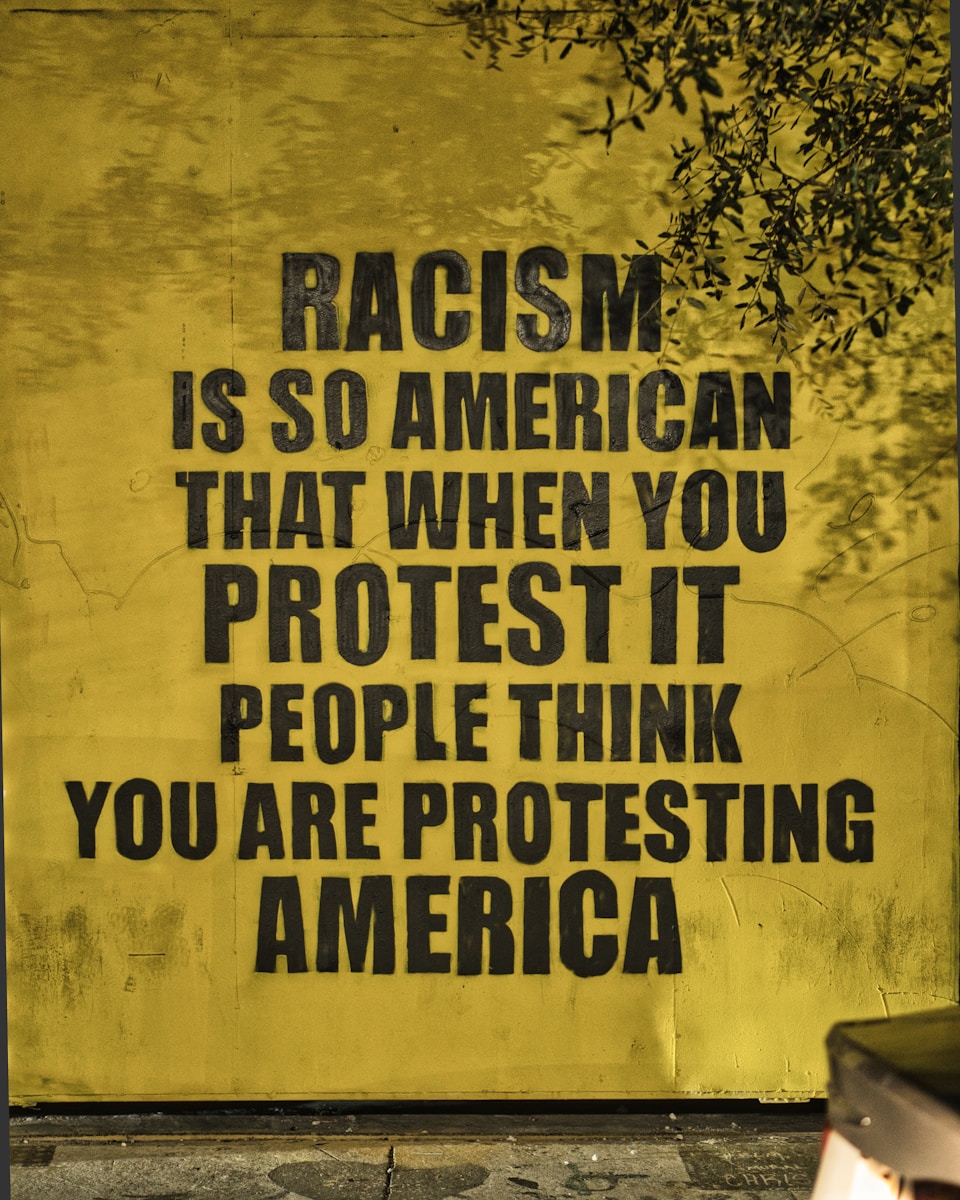The Pattern of Trump’s Racism
RebelAI 7 September, 2025
When evaluating Donald Trump’s rhetoric and record, one lesson from grade school serves us well: use your context clues. Trump rarely spells things out in crude, explicit racial slurs. Instead, his words and actions sit within a pattern, one that becomes unmistakable when you look at the evidence together.
Take his recent remarks about Baltimore and Washington D.C., when he declared that certain offenders were “born to be criminals.” Baltimore is a city that is more than 60% Black, and his comments were directed at residents of predominantly Black neighborhoods in both cities. Maryland Governor Wes Moore immediately condemned the comment as a racist dog whistle, noting that it implied Black children were destined for violence. Trump never uttered the word “Black,” but context tells us who he was really talking about.
This is not new. In 2017, after white supremacists marched in Charlottesville—one of them murdering Heather Heyer—Trump insisted there were “very fine people on both sides.” When the violence came from white extremists, he minimized and equivocated. When the subject is Black communities or immigrants, his language grows harsher: “thugs,” “animals,” “shithole countries,” “bad genes,” “born criminals.” The contrast itself is revealing.
The pattern stretches back decades. In 1989, as New York City reeled from the Central Park jogger case, Trump spent $85,000 on full-page ads calling for the death penalty’s return. While the ads didn’t explicitly name the five Black and Latino teenagers charged, they ran during the height of the case and called for capital punishment “when they kill.” DNA evidence would later exonerate the Central Park Five, but Trump has never apologized; instead, he has consistently refused to acknowledge their innocence. Before that, in 1973, the Department of Justice sued Trump and his father’s real estate company for discriminating against Black renters, a case they settled under federal oversight. A follow-up complaint in 1978 alleged they had violated that agreement. In the 1990s, former employees at his Atlantic City casinos testified that Black workers were ordered off the gaming floor when Trump visited.
This legal history dovetails with the rhetoric of his political career. His 2015 campaign launch speech smeared Mexican immigrants as “rapists.” As president, he derided African and Caribbean nations as “shithole countries.” In 2020, he echoed a segregationist police chief when he tweeted during the George Floyd protests, “When the looting starts, the shooting starts.” In 2024, he claimed that migrants who committed murder had “bad genes,” language that echoes the pseudoscience of eugenics.
Individually, each of these episodes might be explained away by defenders: Trump was “just talking about crime,” or he “misspoke.” But put together, the pattern is undeniable. When he talks about communities of color, he reaches reflexively for the language of pathology—crime, degeneracy, bad blood, genetic inferiority. When white supremacists act violently, he searches for nuance and finds “very fine people.”
So, is it fair to call Trump a racist? The most accurate approach is to focus on the record. He has twice been sued by the federal government for racial discrimination in housing. He has targeted Black and brown communities with demeaning generalizations for decades. He has consistently downplayed or excused white violence while using dehumanizing language about people of color. Whether or not he sees himself as racist, the effects of his words and actions fit established patterns of racial prejudice.
Context clues matter. Trump doesn’t have to say “Black children are natural-born criminals” for us to understand what he means when he talks about Baltimore, or Chicago, or immigrants with “bad genes.” The history, the lawsuits, the rhetoric—they all point in the same direction. And when we follow those clues, the picture that emerges is not ambiguous at all.
https://www.wbaltv.com/article/maryland-open-to-federal-law-enforcement-support-not-troops/65972842


Leave a Reply